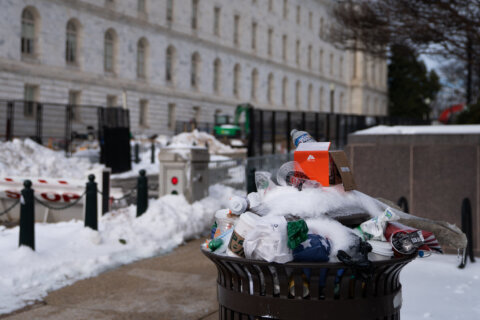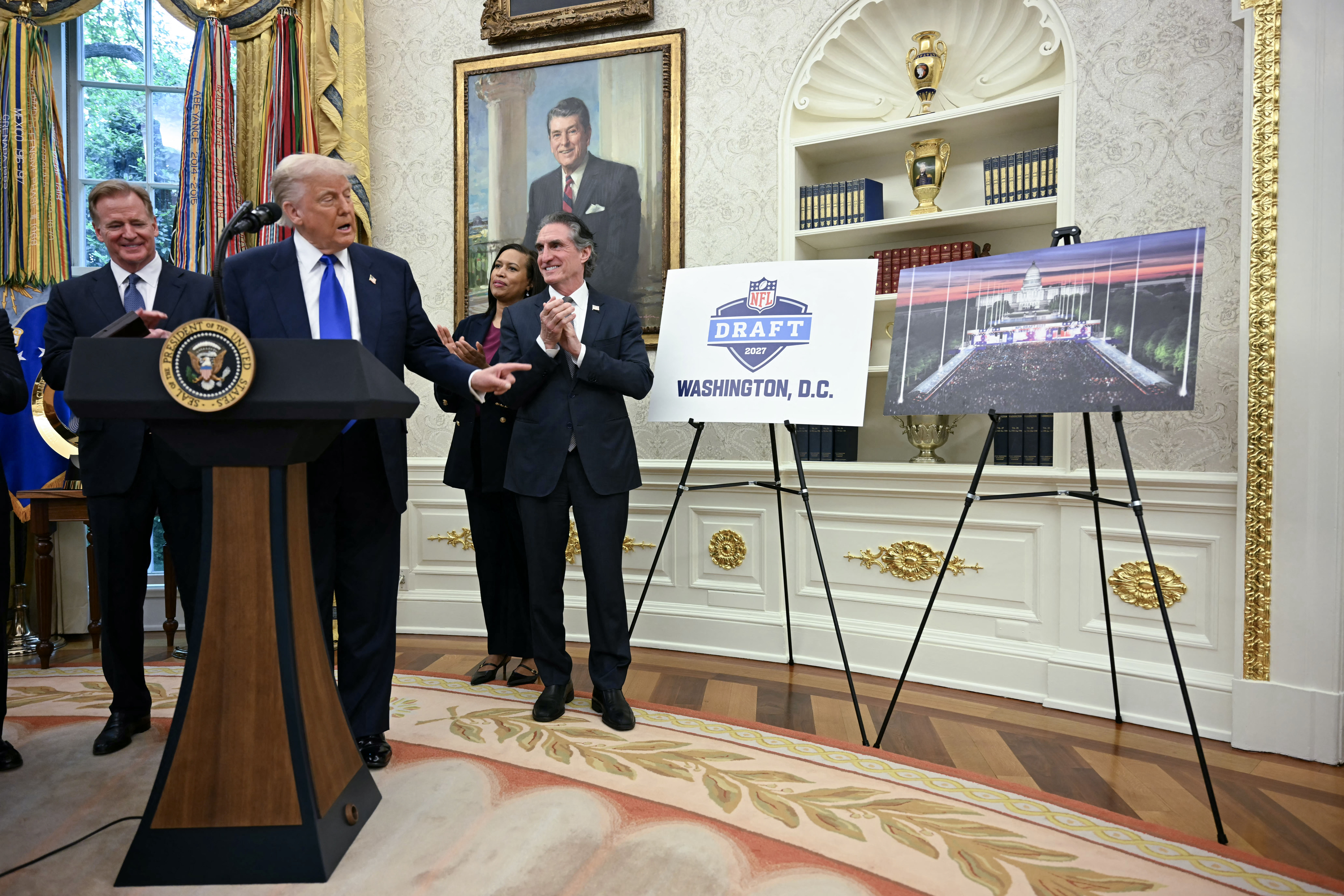Concern about crime in D.C. has prompted a number of actions on the local and federal level.
The latest crime data from D.C.’s Metropolitan Police Department shows a number of categories of crime are down when compared to the same time last year: homicide is down 38% while assault with a dangerous weapon is down 32%. Even motor vehicle theft, which reportedly surged in 2023, is down by 19%.
But 2023 also saw crimes in a number of categories surge.
According MDP’s data for 2023, there were 274 homicides, an increase of 35% when compared to 2022.
And in 2023, there were 6,829 car thefts — an 82% increase over the previous year — the majority of which were carried out by juveniles.
Most recently, the Department of Justice announced more resources for prosecuting crime in the District. And the D.C. Council is considering legislation, supported by Mayor Muriel Bowser, that would toughen penalties for gun-related crimes, lower the threshold for felony retail theft and roll back some previously approved police reforms.
But there’s another approach from within communities in the District.
Driving down juvenile crime
WTOP talked to two organizers who fight to steer young people away from violence and toward a life where they can sustain themselves and their families and avoid the kind of violence that can erupt in neighborhoods at all hours of the day.

Jawanna Hardy is an Air Force veteran and a violence intervention specialist with Children’s National Hospital. She founded Guns Down Friday, an organization that works to link young people with needed resources.
When it comes to juvenile crime, Hardy said there are a number of common threads she sees. First, she said, most of the young people she works with come from homes without basic necessities.
“One of my kids who’s, you know, out here stealing cars … one day I walked into his house,” and Hardy found no food in his refrigerator. Nothing.
Marcellus Queen, who created an organization called Representation for the Bottom, which includes youth and family services, told a similar story.
“I’ve been in houses where there’s no food,” he told WTOP. “I’ve been in houses where he has nowhere to sleep. I’ve been in houses where there’s drugs,” and he said he’s been in homes where children have clearly been fending for themselves for some time.
And, Queen said, the children and teens he works with have been exposed to violence at an early age.
“Ninety percent say, ‘I’ve seen people get shot,'” he told WTOP. “And this is from the ages of middle school to sixteen. Can you imagine?”
So instead of deterring kids from picking up guns, Queen said their circumstances can prompt them to want a firearm “for, at least, protection.”
Queen knows what it’s like for many of the young people he works with.
“My mother was a drug addict.” Queen said. “I was always on survival” mode. At 17, he worked at a local McDonald’s by day but didn’t have a home to go to at night.
“I didn’t have nowhere to sleep.”
He’d often find hallways to sleep in, but before long, he said, he became involved in crime. He has also survived gun violence — Queen was shot nine times in a single instance.
Hardy said a number of teens she works with have parents who are doing the best they can. In other cases, there’s little support outside of school.
“These kids are on IEPs,” she said, referring to Individual Education Plans provided to children with learning disabilities.
Stemming juvenile crime often requires more than one resource
Both Queen and Hardy said it’s not enough to work with a child or teen in a program in isolation.

Queen, who said he served jail time, said change for him came when he was able to find some stability. And it didn’t come from a single program, but from many: He took part in D.C.’s Pathways for Young Adults Program and the Peace Academy, both of which focus on community-building and violence reduction efforts.
Queen took what he learned in those programs and applied it to the work he does now.
“When you tackle the family dynamic as a whole, you see wonders,” he said.
He works to get parents — most often mothers — linked with needed services.
“My mothers run my organization. My mothers are part of my organization,” he said. “You see them grow, and when you see them grow, you’ll also see the kid grow.”
Hardy agreed: “Most of the families I work with, it’s one parent trying their best with several kids.”
The work they do is challenging, with a lot of ups and downs. Queen works to make sure the young people he serves can see a way forward.
“I lost a child to carjacking when I couldn’t find an income for like two months to keep them going,” he said.
Hardy said, “Growing up, I lived the same life as these children,” so when asked how she can keep doing the hard work, she told WTOP, “How can I not do this?”
Get breaking news and daily headlines delivered to your email inbox by signing up here.
© 2024 WTOP. All Rights Reserved. This website is not intended for users located within the European Economic Area.








